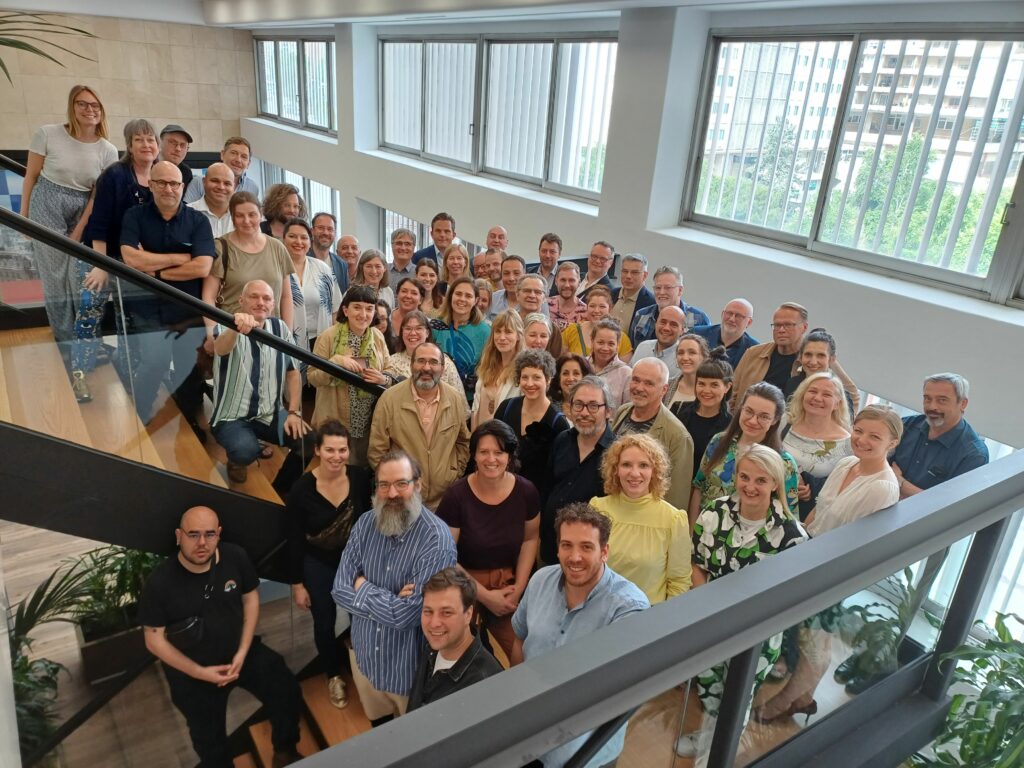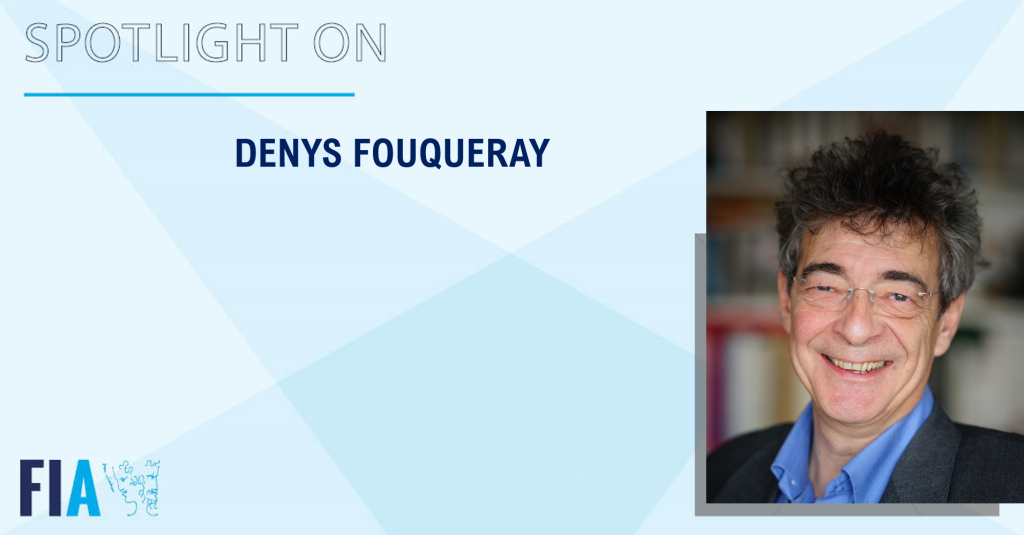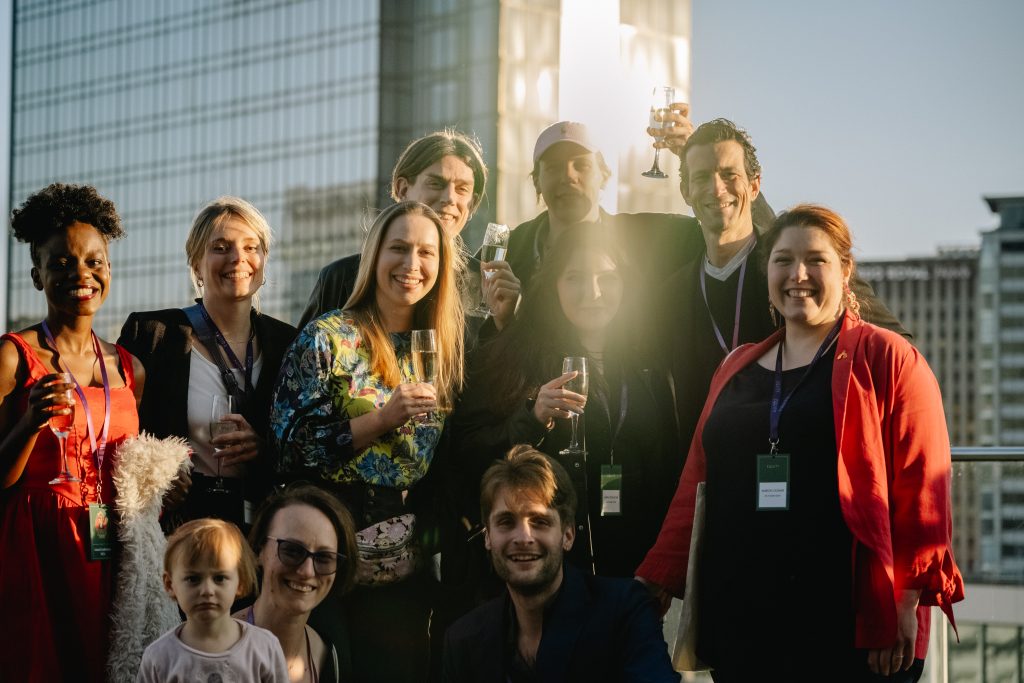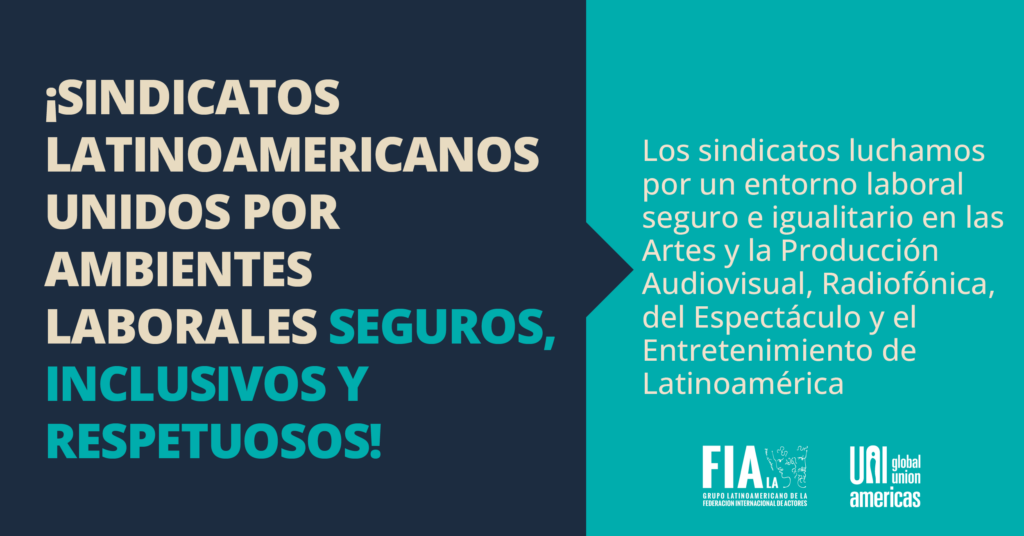For two and half years, FIA and our sister European trade union federations in the Media, Arts and Entertainment sector – FIM, UNI MEI and EFJ – have been conducting a project on Atypical Work – the third in a series, as this has been a long-standing area of shared work. This project drew to a close with a final conference, entitled “Trade Union Organising & Atypical Workers” organised in Madrid on June 8 and 9 2023.
This event was first of all an opportunity for the restitution of the key strand of the project work that was dedicated to trade union organising of atypical workers. It drew on the experience of the unions that have been undergoing training and developing organising drives in their unions in the course of the project . There were two panels, where each of the trainee unions shared the outcomes of the training in their home union They offered insight into the different types of campaigns and approaches that had been developed and there was also time for a question and answer session with attendees. Many of the participating unions reported clear and measurable increases in union membership, as well as also highlighting positive outcomes, such as achieving representativity in a given national theatre, or a positive change in engagement of union activists, and the development of strategies for the future – such as a focus on membership journeys. Some of the developments that were shared were written up in an article by one of the freelance journalists attending the conference and is available to read in English.
The two union trainers who had worked with these unions in the course of the project also ran two workshops for the conference delegates. One of the training workshops looking at deploying an escalation ladder in industrial disputes and the other looked at union strategy development based on data and data analysis. These breakout sessions were an opportunity to engage with these topical union challenges in a hands-on way and there was a lively engagement from participants. The second day opened with a special session on the issue of collective bargaining for self-employed workers in light of the new European Competition guidelines. The participating unions shared their experience of negotiating collective agreements on behalf of their self-employed members and the concerns and challenges that have arisen in this process. A special focus on collective bargaining for self-employed workers will be an important priority in the framework of the planned follow-up project, which we hope will materialise in other to take forward to the work of the four federations on atypical work.
The final conference session was dedicated to an in-depth presentation of the project report “Digital Working in the Media Arts & Entertainment sector: Opportunities and Threats.” This report, which was also presented at the EuroFIA meeting in Tallinn, is the final outcome of the work conducted within the framework of the project on the digital work strategies of workers in the sector. The study looks at new forms of exploitation of work in the Media, Arts and Entertainment sector in the digital sphere. This is a fast moving area and it is very challenging to look for ways to develop decent work in the digital context. Yet unions strongly wish to rise to this challenge. It is important too for unions to stay abreast of digital tools that exploit their members’ work, monitoring the impact of the migration of content on line and the determination of its value in the digital sphere. The report analyses the challenges faced by these workers and different regulatory and trade union strategies that are emerging to address them, as well as suggesting different avenues for work in the future. It has been finalised and will be shortly available online.






